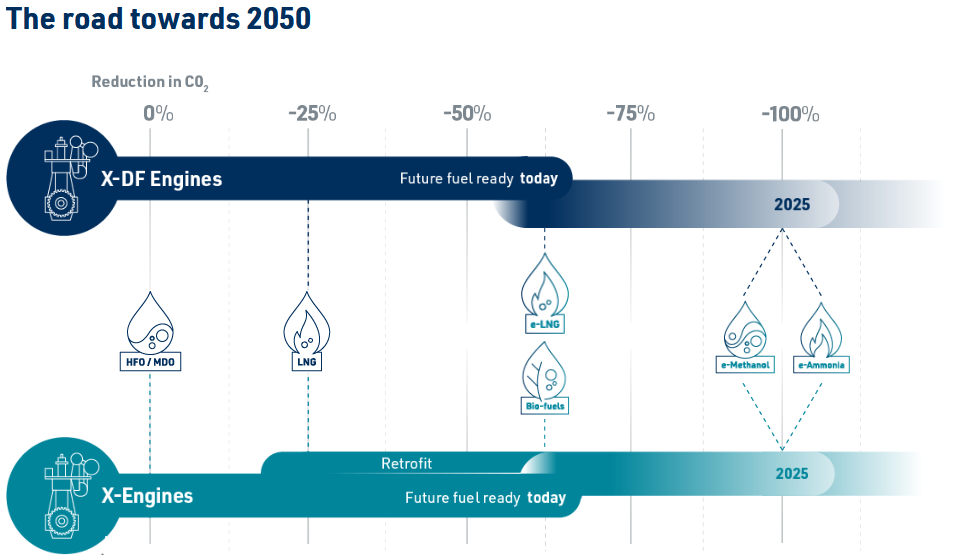WinGD to develop ammonia maritime engines by 2025
By Julian Atchison on December 08, 2021

Swiss-based engine developer WinGD has announced that its current portfolio of low-speed maritime engines will be ready to operate on methanol and ammonia by 2024 and 2025 respectively. Although WinGD’s diesel-fueled X Engine series will require retrofits, the X-DF Engine series is already designed to run on biogas and will not require major modifications to run on methanol or ammonia.
“By 2030, many of the ships that will be sailing in 2050 – the date of IMO’s greenhouse gas emission reduction target – will already have been ordered.
“Our clean fuel engine technologies will be available well before then and will be based largely on our current technologies, allowing us to support ship owners and operators in their decarbonisation choices whenever they make them.”
WinGD’s Director or Global Sales Volkmar Galke in the official press release, 23 Nov 2021
WinGD
WinGD began its fascinating history in Winterthur, Switzerland, after the Sulzer brothers signed an agreement with Rudolph Diesel to develop and manufacture his new engine technology in 1893. Fast forward to 1997, and New Sulzer Diesel Ltd. merges with Wärtsilä Diesel Oy to form what we now know as the Wärtsilä Corporation.
Within Wärtsilä, a Swiss-based subsidiary was responsible for the development of low-speed, two stroke maritime engines until 2015, when it merged with the China State Shipbuilding Corporation (CSSC). Wärtsilä transferred total ownership to CSSC the following year. The renamed Winterthur Gas & Diesel (WinGD) is now completely independent of Wärtsilä, though both are developing ammonia-fueled maritime engine products with similar heritage lines.